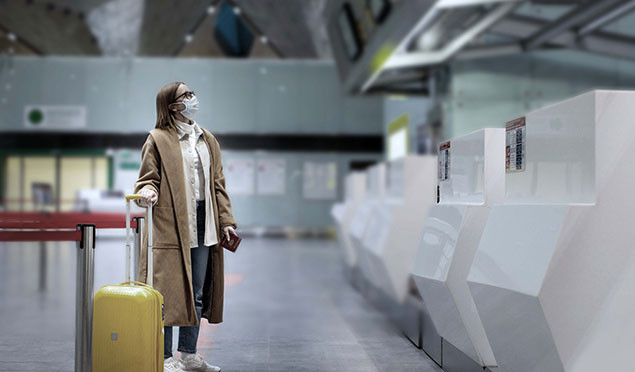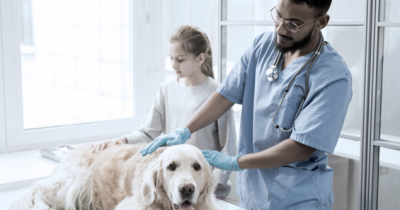What you need to know about local travel as lockdown restrictions ease

Last updated on 16th November, 2021 at 09:37 am
While it’s legal to travel for business and special circumstances, what considerations should you take before booking your next trip? We asked an expert and got tips from our travel partners.
Is it safe to travel locally, even if you’re legally allowed to?
“Easing of lockdown restrictions while there is still active community spread of the virus means that your exposure to the virus will increase, as you will interact with more people either at work or in public,” says Dr Jabulani Ncayiyana, senior lecturer and epidemiologist at UCT’s School of Public Health and Family Medicine. “As long as there is still active community transmission of the virus, any travel carries some level of risk,” he continues. “Even if we are legally allowed to travel, it doesn’t mean you have to travel. You have to make a judgement call based on risks and benefits.”
That said, the risk is dependent on several factors:
The rate of transmission at your departure and arrival destinations
“For example, the risk is high if you are travelling from a low-risk area to a high-risk area (what we epidemiologists call ‘hotspots’), while travel from a low-risk area to another low-risk area may carry minimum risk,” says Dr Ncayiyana.
Mode of travel
“Despite measures taken by the transport industry (air or land), there will be some risk,” says Dr Ncayiyana. He cites the example of a trip from Durban to Jo’burg, and the options available to travellers:
Plane
“If you travel by air, travel time will be short, and this translates to relatively short exposure.”
Bus
“The same trip by bus will be about 7-8 hours, plus there will be people getting on and off along the way,” he says. “Also take into account the air circulation in the bus, and whether all passengers will maintain personal hygiene throughout the entire journey.”
Car
“Self-drive carries little to no risk, as you would be travelling alone or with close family,” Dr Ncayiyana concludes.
Self-drive safely by hiring a car from Tempest Car Hire – from just R240/day for Sanlam Reality members. Click here to learn more.
Participation in activities
“If you’re invited to participate in activities, consider where these are hosted indoors or outdoors. And how many people are you interacting with, and for how long?” say Dr Ncayiyana. These are seemingly small considerations, but they can have a detrimental impact if not managed.
At-risk groups
By now you know that at-risk groups, including the elderly, those with pre-existing immunodeficiency, and pregnant women, should take extra precautions when it comes to travel, as this carries a higher risk for transmission.
What precautions should I take while travelling?
As restrictions lift, it’s important to take any and all precautions seriously and not cut corners for the sake of convenience. The nature of the coronavirus means that it can easily be picked up both through human-to-human contact, and human-to-surface contact. You can also carry the virus and be completely asymptomatic but contagious. Here’s what Dr Ncayiyana suggests as the most important precautions to take while travelling:
- Carry a 70% alcohol-based hand sanitiser with you. “Even handwashing while travelling carries some risk because handwashing facilities will be used by many people,” he cautions.
- Wear a cloth face mask at all times.
- Practise social distancing where it is feasible or possible to do so.
- Carry alcohol-based sanitary wipes to clean surfaces before use in public spaces.
- Minimise contact with people and surfaces. “For example, for air travel, use the online check-in and electronic boarding pass if you have these features on your smartphone,” he recommends. “If your bank card has the functionality, complete payments by tapping your card instead of swiping.”
Here’s how our travel partners are keeping you safe
Intercape Bus
Before booking your ticket, try best wherever possible to go the digital route instead of booking at an Intercape office. “We encourage passengers to rather make use of our online booking platform (website, WhatsApp, call centre or live chat) than visiting crowded public spaces,” says Shaun Smeda, Chief Commercial Officer of Intercape. Social distancing and self-hygiene remain key, “so don’t forget your mask and sanitiser.” Note that you may book for any route except those involving travel across national borders.
If you do need to go to an Intercape office, look out for the sanitiser upon arrival to disinfectant your hands. Be ready to wait your turn, as only a limited number of people will be allowed into the office at a time. “If possible, bring your own pen to limit the potential spread of the virus on surfaces,” suggests Smeda.
Before boarding
You’ll need to present a travel permit before being allowed to board an Intercape bus. Coaches are capped at 50% capacity per government regulations, and all coaches are sanitised before and after each trip. Per government regulations, no mask = no boarding. Use the hand sanitiser at your boarding gate, and get your travelling party to do the same. If you do sneeze or cough, make use of your arm as a shield (even if you have a mask on).
Expect to have your temperature taken by boarding staff – any passenger with a temperature above 38°C won’t be allowed to board, says Smeda. Once you’ve checked in, make your way to your coach, handling your own luggage until you reach your professional driver to limit the risk of transmission.
On board
Your boarding attendant will direct you to your allocated seat. Be sure to avoid touching surfaces wherever possible, and keep your mask on for the whole journey.
Reality Club members get 50% off (up to R375) two Intercape Bus tickets every year. Learn more here.
Tempest Car Hire
“Tempest Car Hire has implemented a number of new procedures that we diligently adhere to at all times to ensure our customers are safe in our branches and cars,” says Martin Lydall, Executive of Tempest Car Hire. “All cars are sanitised by our drivers after delivery to the branch so that no other person enters a vehicle during the period between when it is sanitised and when a customer receives it,” he shares.
After the driver has completed sanitising the vehicle, a hanger is placed on the steering wheel to show the process was completed. This is to enable internal quality control and to give customers peace of mind that the process was completed.
Collection and drop-offs
“In our branches, the cleaning frequency has been increased and includes sanitising of all hard surfaces,” says Lydall. Floor decals and a different queuing layout have been introduced in the Tempest Car Hire branches to encourage social distancing. Counter screens and temperature testing have also been introduced, and keys, pens, credit card machines, and any other items are sanitised between each transaction, he shares.
Reality Core, Plus and Health members, enjoy discounted car hire with Tempest Car Hire, from as little as R240 per day. This includes unlimited mileage and Tempest’s Super Cover. Book now.
Stay up to date on programme benefits and how they’re impacted by COVID-19 here.
Want to learn more?
We send out regular emails packed with useful advice, ideas and tips on everything from saving and investing to budgeting and tax. If you're a Sanlam Reality member and not receiving these emails, update your contact details now.
Update Now







